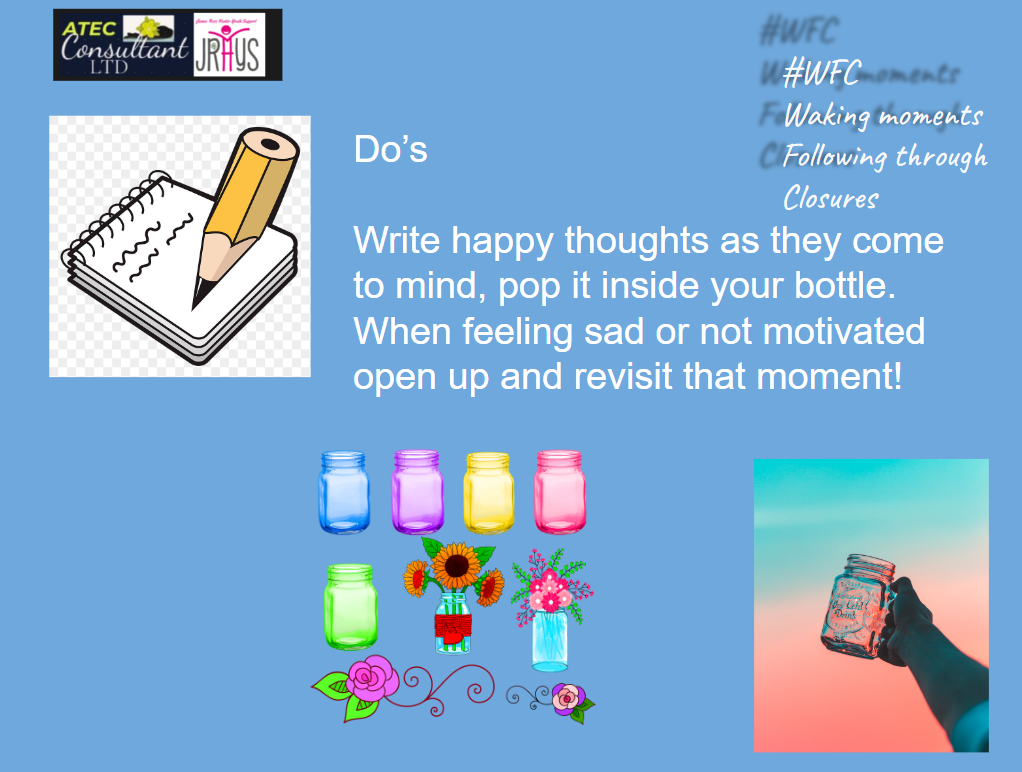Workshop Facilitation Through Lived Experience - The WFC Framework
Workshop Facilitation Ten Years Later.
WFC by CHunter
(waking moments, following through and closures) My Lived Framework simplified
Beginning with the Lord's Prayer, 'forgive us our trespasses as we forgive them who trespass against us' I reclaimed my Catholic faith only weeks ago my faith and belief in the Holy spirit carries on. Forgiveness either way bonds our hearts together.
" How Are You Really Feeling?"
Use thoughts to identify feelings
I have learnt to to recognise body signals of different emotions.
"Emotion Detective" spotting feelings with scenarios and stories
"Movement exercises" to understand how emotions feel in our bodies
***********************************************************************************
My journey, oh boy, personality changes, maybe 'menopause'?
With ongoing triggers I believe our personality changes to bridge the gap to realisation, acceptance and survival in daily and waking moments of reality. People's personalities can change for many reasons. The below helps me to understand myself and others.
Life experiences: Major events like marriage, losing a loved one, or changing careers can shift how people think and behave.
Personality growth: As people learn and gain new perspectives, their personalities may evolve
Environment: Different situations and relationships can bring out different aspects of personality
Age and development: Natural maturation often leads to personality changes especially during key life stages.
Some key ways to help others during transitions and challenging times:
1. Listen without judgment: Sometimes people just need someone to hear them out. Let them share their feelings and experiences without trying to fix everything.
2. Stay present: Regular check-ins and consistent support matter more than grand gestures. A simple "How are you doing today?" can mean a lot.
3. Understand that change takes time: People process changes at different speeds. Some may take longer to adjust to new situations or cope with loss.
4. Offer practical help: This could mean:
- Helping with daily tasks when they're overwhelmed
- Accompanying them to appointments
- Bringing meals during difficult times
- Helping them find professional support if needed
5. Validate their feelings: Let them know it's normal to feel uncertain, scared, or confused during major life changes.
Each day stems from my waking moments, following through and closures.
10 years later
"My challenges, while actively working to maintain a positive outlook showing emotional wisdom.
The truth about waking moments, feelings, growth, aspiration, closure and honesty.
It's human and understandable to struggle, and looking at others' situations helped me to feel both grateful and less alone in my difficulties. Though it's important to remember that my own challenges are still valid - it's not a competition of suffering". Cbh
The fact that I actively try to "look on the brighter side" while still acknowledging difficulties shows resilience. I am not denying the hard parts, but choosing to also see possibilities and hope.
Working on myself towards my goals, even during tough times, reflects my inner strength.
Each small step forward matters, even on days when it's harder to see the bright side.
Hope and optimism are like muscles - they need consistent nurturing, especially during challenging times.
Here's what I've reflected on about sustaining hope:
Sometimes maintaining hope isn't about feeling positive all the time. It's about acknowledging that even in darkness, dawn will eventually comes.
Small actions matter - tending to a plant, sharing a kind word, or taking one small step forward can be acts of hope.
There's strength in realistic optimism - not denying difficulties, but believing in our capacity to work through them.
This might mean saying "This is hard right now, AND I can handle it" rather than just trying to think positively".
Hope often lives in connection - whether with others, with nature, with art, or with whatever gives your life meaning. On days when it's harder to find hope within yourself, these connections can hold it for you.
I believe it's okay to desire and sustain hope, which itself is an act of courage.
What helps you to keep your spark of hope alive during challenging times?
When it comes to personal growth and self-reflection, these elements are deeply interconnected:
Feelings serve as our internal compass, helping us understand what matters to us and what we need. Rather than just positive or negative, they carry nuanced information about our experiences and relationships.
Goal mapping is a strategic planning technique that helps visualise and organise your goals, breaking them down into actionable steps. Let me explain its key aspects and benefits:
What is Goal Mapping:
- It's a visual representation of your goals and the path to achieve them
- Think of it like a roadmap where you plot your current position, destination (goals), and the routes (steps) to get there
Benefits of Creating a Goal Map:
1. Clarity and Focus
- Helps you clearly define what you want to achieve
- Eliminates vagueness and transforms abstract wishes into concrete objectives
- Keeps you focused on your priorities
2. Better Planning
- Breaks down large goals into manageable steps
- Helps identify potential obstacles and resources needed
- Creates a realistic timeline for achievement
3. Motivation and Accountability
- Provides a visual reminder of your commitments
- Makes progress visible and measurable
- Helps maintain motivation during challenging times
4. Strategic Thinking
- Encourages you to think about different paths to your goals
- Helps identify dependencies between different goals
- Allows you to spot potential conflicts or overlaps
5. Personal Development
- Promotes self-reflection and awareness
- Helps identify areas where you need to grow or learn
- Builds confidence as you see progress









Comments
Post a Comment